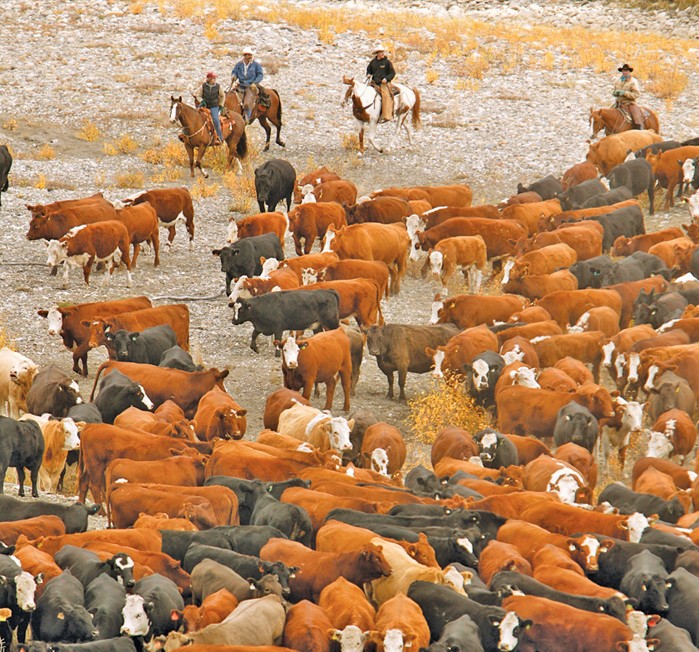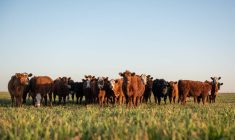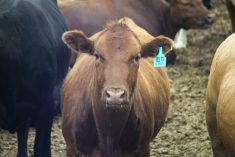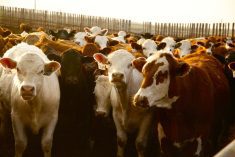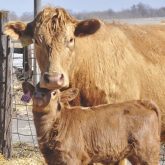Good times have finally returned to the beef sector, and now is the time to focus on bringing in the next generation, says the chair of Alberta Beef Producers.
The entire industry has gotten greyer during the difficult decade following the discovery of BSE, said Greg Bowie.
“Not only is the average producer in the beef sector older than in most industries, but the people involved in the industry end of things tend to be a little older as well,” said Bowie, a seed stock producer from Ponoka.
“But in the last few years, we have seen a number of younger people getting involved and becoming delegates, so that is a positive sign.”
The Canadian and Alberta cattle herds are still contracting, with many older, smaller producers taking advantage of the price rebound over the past couple of years to exit the business.
The rebuilding process will take time, but will accelerate once people see that raising cattle is a good business to be in.
“Most people think that we’re riding a high and we’re going to come down, but my opinion is that we’re looking at this as the new normal,” he said. “We’ve just caught up for a lot of bad years, and now things are looking more positive.”
There are tremendous opportunities for those wanting to expand and for new entrants, he said. But young people face an additional barrier in getting started compared to those in the grain sector.
Read Also

Mid-June rain a ‘godsend’ but forage growers manage expectations
Although chunks of Alberta got some major rainfall the weekend of July 21-22, the jury’s still out on whether it will make a difference to what has so far been a mediocre year for hay.
- From the Canadian Cattlemen: The tipping point between supply and demand
“We can insure price, but as far as production insurance, there’s really nothing that allows us to cover off some of those things. For a young person going to a bank, it’s more difficult for them to go in if they’re proposing a beef operation rather than a grain operation.”
Moreover, building a herd doesn’t happen in a season.
“When someone thinks about keeping back heifer calves, that’s a long-term investment,” noted Bowie. “For an established producer, it’s a little easier to do because they’ve got the equity and they can make it happen. For a young producer to do that, it’s very hard to justify that and keep the cash flow going.”
It takes determination to get into the cattle business, especially in a province where there is an abundance of good paying jobs in the energy industry and other sectors, and there’s been fierce competition for farmland, he said.
“When we have a few years of these good prices and it becomes the new normal, instead of just a peak in the cycle, people will start being able to justify the price that they are going to have to pay for that land, to be competitive with other industries,” he said.
One of the main challenges for his, and other organizations in the beef sector, is fighting for more research dollars, he said.
Research funding has decreased in recent years, and it’s critical to get that money back and attract a new generation of researchers.
“Our competitiveness compared to other beef-exporting nations around the world is crucial to maintaining our reasonable prices,” he said. “If we can’t be competitive with other nations and we start to fall back, it’s very difficult to regain that again.”
But the decision by McDonald’s to pilot “sustainable beef” initiative is a sign that there’s a bright future for the Canadian beef industry, he said.
“McDonald’s could have chosen another place to do its pilot project, but it chose Canada.”
New entrants can play a role in seizing the opportunities that are appearing on the scene by becoming an Alberta Beef Producers delegate or becoming active in other national cattle organizations, he added.


